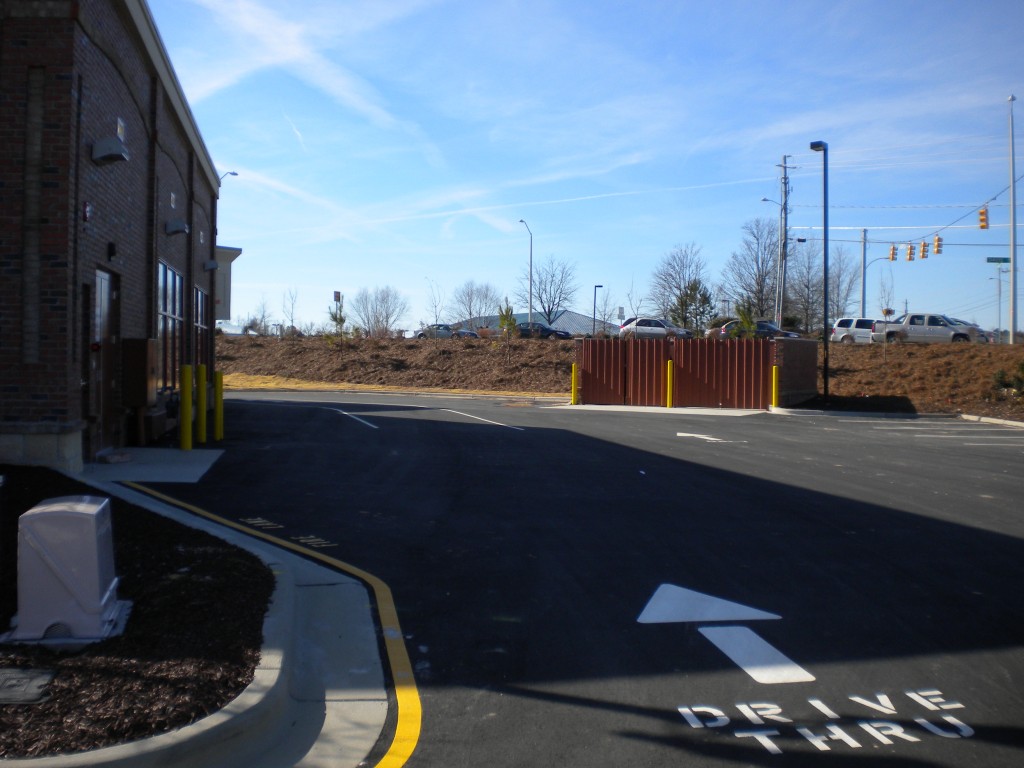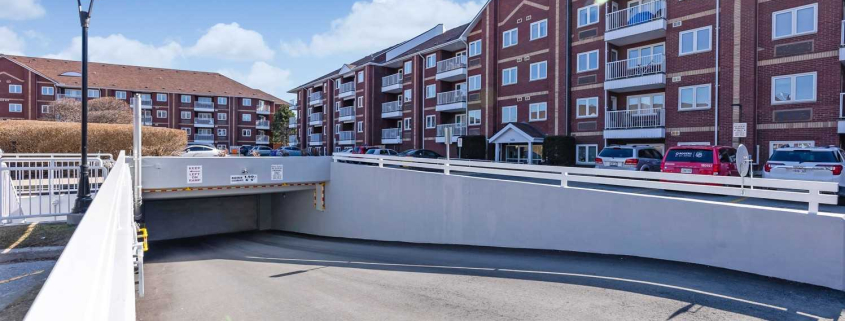Driveway Resurfacing vs. Driveway Replacement: Which Is Better for You?
For property managers and owners across the Greater Toronto Area, maintaining commercial driveways is a critical investment that directly impacts property value, safety, and curb appeal. Whether you manage an apartment complex in North York, a hotel in Mississauga, or a commercial plaza in Scarborough, the condition of your driveway speaks volumes about your property before visitors even step through the door.
When your commercial driveway starts showing signs of wear—cracks, potholes, or surface deterioration—you’re faced with an important decision: should you resurface or completely replace it? This choice affects not only your immediate budget but also long-term maintenance costs and property functionality. With Toronto’s harsh freeze-thaw cycles and heavy traffic loads typical of commercial properties, making the right decision requires understanding both options thoroughly.
As experienced concrete repair and concrete restoration contractors serving the GTA for over 30 years, we’ve helped countless property owners navigate this decision. In this guide, we’ll break down everything you need to know about driveway resurfacing versus replacement for commercial properties, so you can make an informed choice that protects your investment.
Understanding Driveway Resurfacing for Commercial Properties
Driveway resurfacing, also known as driveway repaving, involves applying a new layer of asphalt or concrete over your existing driveway surface. Think of it as giving your driveway a fresh top coat without disturbing the foundational layers beneath.
What Does Resurfacing Involve?
The resurfacing process typically includes several key steps:
First, a driveway repaving contractor will thoroughly clean the existing surface, removing debris, vegetation, and any loose material. Next, they’ll address minor cracks and damages with appropriate fillers and sealants. The existing surface is then treated with a bonding agent to ensure proper adhesion. Finally, a new layer of asphalt (typically 1.5 to 2 inches thick) or concrete overlay is applied and compacted or finished.
For commercial properties in Toronto and the GTA, this process usually takes 2-4 days depending on the size of the area and weather conditions. The result is a smooth, attractive surface that can extend your driveway’s life by 8-15 years when properly maintained.
When Is Resurfacing the Right Choice?
Resurfacing works best when your driveway’s foundation and base layers remain structurally sound. Consider resurfacing if your commercial property’s driveway exhibits:
Surface-level damage only: Minor cracks (less than 1/4 inch wide), surface spalling, fading, or weathering that hasn’t penetrated to the base layers. If the damage is primarily cosmetic or limited to the top layer, resurfacing can effectively restore appearance and functionality.
Stable foundation: The driveway sits on a solid, well-compacted base without significant settling, heaving, or drainage issues. You can test this by walking the entire surface—if you don’t feel significant dips, bumps, or soft spots, the foundation is likely sound.
Recent installation: The driveway was installed within the last 15-20 years and hasn’t been previously resurfaced multiple times. Toronto contractors generally recommend that driveways be no more than 20 years old for successful resurfacing.
Budget constraints: You need to improve the driveway’s condition but must work within a tighter budget. Resurfacing typically costs 30-50% less than complete replacement, making it an attractive option for property owners managing multiple locations or facing unexpected expenses.
Adequate drainage: Water flows properly away from the surface without pooling, which is crucial in Toronto’s climate where standing water can freeze and cause rapid deterioration.

Understanding Complete Driveway Replacement
Complete driveway replacement is a more comprehensive solution that involves removing the existing driveway entirely—including the base layers—and rebuilding from the ground up. While more expensive and time-consuming, replacement addresses fundamental structural issues that resurfacing cannot fix.
What Does Replacement Involve?
A full replacement project undertaken by concrete restoration contractors includes:
The complete removal and disposal of existing asphalt or concrete, excavation to the appropriate depth (typically 12-18 inches for commercial applications), grading and compacting the subgrade soil, installing proper drainage solutions if needed, laying new base layers (typically 8-10 inches of compacted aggregate for commercial properties), and finally installing a new surface layer of asphalt or concrete designed to handle commercial traffic loads.
For commercial properties in the GTA, complete replacement projects typically take 5-10 days, though larger developments may require more time. This timeline includes proper curing periods, which are essential for long-term performance, especially given Toronto’s climate variations.
When Is Replacement the Better Option?
Despite the higher cost, replacement becomes necessary—and ultimately more cost-effective—when:
Significant structural damage exists: Deep cracks (wider than 1/4 inch), alligator cracking (interconnected cracks forming a pattern resembling alligator skin), large potholes, or widespread crumbling indicate that the damage has penetrated through to the base layers. These issues signal that the foundation itself has failed.
Foundation has failed: You notice settling, heaving, or shifts in the driveway surface. In Toronto and the GTA, freeze-thaw cycles can cause significant ground movement, compromising the base layer over time. If sections of your driveway have sunken or risen noticeably, the foundation needs to be addressed.
Drainage problems persist: Water consistently pools on the surface, creating ice hazards in winter or accelerating deterioration. Poor drainage is a common issue in commercial properties where surrounding landscaping or building additions have altered water flow patterns. Simply resurfacing won’t solve these problems.
Previous resurfacing has failed: The driveway has been resurfaced once or twice before but continues to deteriorate rapidly. This suggests underlying issues that need to be addressed with a complete rebuild.
Age exceeds 25 years: Even well-maintained driveways deteriorate over time, especially under the stress of commercial traffic and Toronto’s extreme weather. Beyond 25 years, the base materials have typically degraded to the point where replacement offers better long-term value.
Traffic load requirements have increased: Your property’s use has intensified—perhaps you’ve added delivery services, increased parking density, or begun accommodating heavier vehicles. The original driveway may not have been engineered for current demands.
Toronto Climate Considerations: How Weather Impacts Your Decision
Toronto’s climate plays a crucial role in driveway longevity and your decision between resurfacing and replacement. As contractors working throughout the GTA, we’ve seen firsthand how local weather patterns affect commercial driveways.
Freeze-Thaw Cycles and Their Impact
Toronto experiences approximately 40-60 freeze-thaw cycles each winter—when temperatures fluctuate above and below freezing. This constant expansion and contraction is particularly brutal on concrete repair work and asphalt surfaces:
Water seeps into small cracks and pores during warmer periods or rainfall. When temperatures drop, that water freezes and expands by approximately 9%, creating pressure that widens cracks and breaks down materials. As it thaws, the weakened material allows more water penetration, and the cycle continues.
Implication for your decision: If your driveway already has cracks that allow water penetration, resurfacing provides only a temporary fix. The damage will continue beneath the new surface. However, if caught early—before water has compromised the base—resurfacing combined with proper sealing can prevent freeze-thaw damage from progressing.
Heavy Snow Loads and Salt Exposure
Commercial properties in Toronto face additional challenges from snow removal operations. Heavy plows, repeated scraping, and chemical de-icers all accelerate surface deterioration:
Industrial salt and de-icing chemicals break down the binder in asphalt and attack the surface of concrete. Snow plow blades create additional surface abrasion, especially when operators hit the surface repeatedly. The weight of snow piles placed consistently in the same areas can cause localized stress and cracking.
Implication for your decision: Surface damage from salt and plowing can often be addressed with resurfacing, restoring a smooth, safe surface for another decade. However, if salt has penetrated deeply or if drainage problems have allowed salt-water mixtures to seep into the base, replacement may be necessary to prevent continued rapid deterioration.
Summer Heat and UV Exposure
While winters get more attention, Toronto’s hot summers also affect driveways. Extended periods above 30°C soften asphalt, making it vulnerable to rutting from heavy vehicles, while UV radiation breaks down binder materials over time, causing oxidation and brittleness.
Implication for your decision: UV damage and minor softening are surface-level issues that resurfacing handles well. Modern resurfacing materials can include UV-resistant additives particularly beneficial for exposed commercial lots in the GTA.
Making Your Decision: Key Factors for Commercial Property Owners
Conduct a Thorough Assessment
Before deciding, have qualified contractors evaluate:
Surface condition: Document crack patterns, pothole locations, surface spalling, and drainage issues with photos and measurements.
Foundation integrity: Professional contractors can use ground-penetrating radar, core sampling, or other techniques to assess base layer condition without extensive excavation.
Drainage performance: Observe water flow during rain events. Standing water indicates grading or drainage problems that require attention.
Traffic patterns and loads: Consider current and anticipated future use. Planning for property expansion or use intensification now can prevent premature failure.
Consider Your Timeline and Property Plans
Your decision should align with broader property management strategies:
Short-term ownership (1-5 years): If selling relatively soon, resurfacing may provide the improved appearance and functionality needed to attract buyers without the full replacement investment.
Long-term ownership (10+ years): Replacement offers better long-term value by resetting the clock on driveway life expectancy, providing 20-30 years of service.
Planned renovations: If other significant property work is scheduled, coordinate driveway work to minimize disruption and potentially share mobilization costs with other contractors.
Evaluate Multiple Professional Opinions
For commercial properties in the GTA representing significant investments, obtain assessments from at least 2-3 qualified contractors. Look for:
Detailed explanations: Contractors should explain their recommendations specifically, pointing out problem areas and explaining why they suggest their chosen approach.
Transparency about limitations: Reputable driveway repaving contractors will honestly discuss what resurfacing can and cannot address, rather than promising solutions that won’t hold up.
Relevant experience: Choose contractors with extensive commercial property experience in Toronto and the GTA who understand local climate challenges, building codes, and the specific needs of multi-unit residential, hospitality, and commercial properties.
Warranty offerings: Compare warranty terms—longer warranties often indicate contractor confidence in their assessment and work quality.
Protecting Your Toronto Commercial Property Investment
The decision between driveway resurfacing and complete replacement isn’t one-size-fits-all. For commercial properties throughout the Greater Toronto Area, the right choice depends on your driveway’s current condition, your budget and timeline, property usage and future plans, and Toronto’s specific climate challenges.
Resurfacing offers an economical solution when your foundation remains sound and damage is primarily surface-level. It provides 8-15 years of additional service at a fraction of replacement cost, making it ideal for property owners with budget constraints or shorter investment timelines.
Complete replacement, while more expensive initially, becomes the better value when foundation problems exist, drainage issues persist, or your driveway has reached the end of its serviceable life. By addressing root causes rather than symptoms, replacement provides 20-30 years of reliable performance that ultimately costs less per year than repeated resurfacing of a failing surface.
At Nusite Group, we’ve served commercial property owners across Toronto and the GTA for over 30 years, providing concrete repair, concrete restoration, and comprehensive foundation solutions. Our experience with the unique challenges facing commercial properties in our climate—from freeze-thaw cycles to heavy traffic loads—allows us to provide honest, accurate assessments that help you make the best decision for your property.
Whether your apartment building in Etobicoke, hotel in Markham, or commercial plaza in Vaughan needs driveway attention, we’re here to help you evaluate your options and execute the solution that best protects your investment.
Ready to assess your commercial driveway? Contact Nusite Group today for a comprehensive evaluation from Toronto’s trusted concrete restoration contractors. With our extensive experience in concrete repair, waterproofing, and commercial restoration throughout the GTA, we’ll provide the honest guidance and expert workmanship your property deserves. Let’s discuss which option—resurfacing or replacement—is right for your specific situation.



